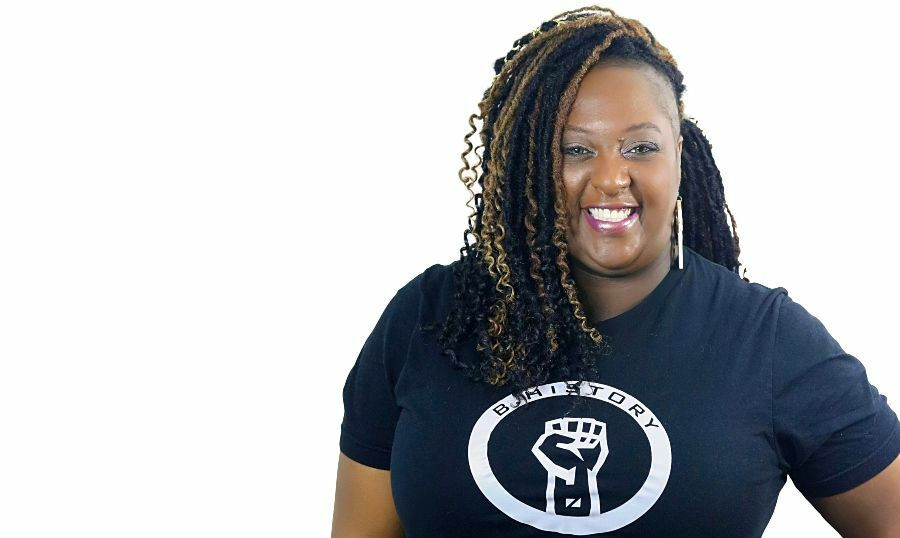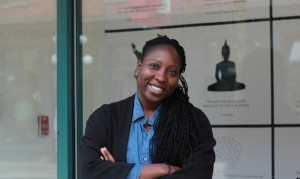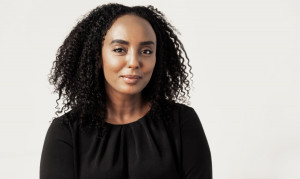Black History Manitoba, formerly known as Black History Month Celebration Committee, is a community-based NGO established 40 years ago by a small group of Black community members to celebrate Black Manitoban history and provide a voice for their people.
Until about seven years ago, the focus of the Committee was Black History Month celebrations. However, they’ve since grown into educating the public about Black history beyond February through the inclusion of summer events.
Rebranded as Black History Manitoba in 2020, BHM now advocates for Black history education year-round and serves as a resource hub to share researched information with other like-minded organizations.
Thompson says Manitoba has one of the fastest-growing Black communities in the country with the longest-running multicultural festival in the world. Although the province has great advocates committed to change, it also has its fair share of racism and discrimination like anywhere else in Canada. She feels there’s work to be done on issues of racial profiling, discrimination, police brutality, and systemic violence against people of colour.
Since the 1906 arrival in Swan River of the first documented Black person, William S. A. Beal, Manitoba has been maintaining its own place in the history of Black Canadians. Over the years, Manitoba’s Black population has grown steadily.
The province contributed several pioneers to the greater Canadian community; the first Black female pharmacist, Frances H. Atwell; the first Black man in the modern Royal Canadian Navy, Percy Haynes; and the first Black Chief of Police, Mr. Devon Clunis.
Up until 2019, Black people did not have any representation in the province’s legislature. But now three representatives have come into the picture: Jamie Moses, in St. Vital; Audrey Gordon, in Southdale; and Uzoma Asagwara, in Union Station.
In January 2021, Manitoba got its first Black Cabinet Minister, Audrey Gordon, who is Minister for Mental Health, Wellness, and Recovery.
The most notable recent history that Black Manitobans made would be the Black Lives Matter Movement protest in 2020, which brought out more than 20,000 people.
“The federal government, the province, and other government representatives are engaging with our community, which is a great start,” Thompson says. “We have representation now, so we must use those networks to help accelerate our voices and celebrate our history.”
Some of BHM’s events include award banquets acknowledging the work of community members, concerts, history lessons, job fairs, comedy shows, and events geared towards youth like basketball games, debates, fashion shows, school presentations, barbecues, anti-bullying workshops and art shows.
In addition to community-building events, BHM has a mobile bookstore carrying the works of Black authors and publishers and is invested in community redevelopment and rebuilding projects. In 2019 and 2020, BHM held more than 15 events per year for different audiences.
During the pandemic, BHM has worked diligently to make the best use of online platforms to organize virtual events and work remotely. For example, young people stuck at home can tune into storytimes hosted by BHM on their YouTube channel. In collaboration with over twenty schools, BHM’s virtual Black history field trips to The Manitoba Museum of Man and Nature reached 3000-5000 children in January and April of 2021 alone.
Yet, the biggest success for BHM has been the number of people connecting with them, either sending or requesting information. Over the years, the amount of teachers requesting BHM to do presentations and provide resources for information has grown immensely.
BHM also partners with different organizations to bring light to issues of concern. For example, it supported the organization of the Black Lives Matter movement rally in Manitoba last year and is currently partnering with Barbados Canada Association in promoting a mental health project.
According to Thompson, the major misconception in the community has been the belief that only Black people are allowed to be involved with BHM.
“Though most of our attendees are Black people, we don't focus only on the Black community,” says Thompson. “We want to educate everybody so all of our events are open and anybody can participate as long as they’re there to learn and have a voice.”
Today, BHM has four board positions and a diverse committee of fourteen members who volunteer their time and advocate for the Black community. BHM is also supported by other volunteers of various backgrounds who are helping to create dialogue.
“We believe that we benefit from having different people represented around the table who have a voice and contribute to what and how we're doing things,” says Thompson.
The biggest challenge BHM has to face is engagement. How do you get people to participate?
“We put so much effort into organizing and hosting events, yet we don’t always get the attendance we hope for.”
The lesson in this is to not get discouraged.
“If you even change one person's mind, I think that's a success,” Thompson says. “The numbers don't necessarily mean as much as the outcome.”

 By
By 





